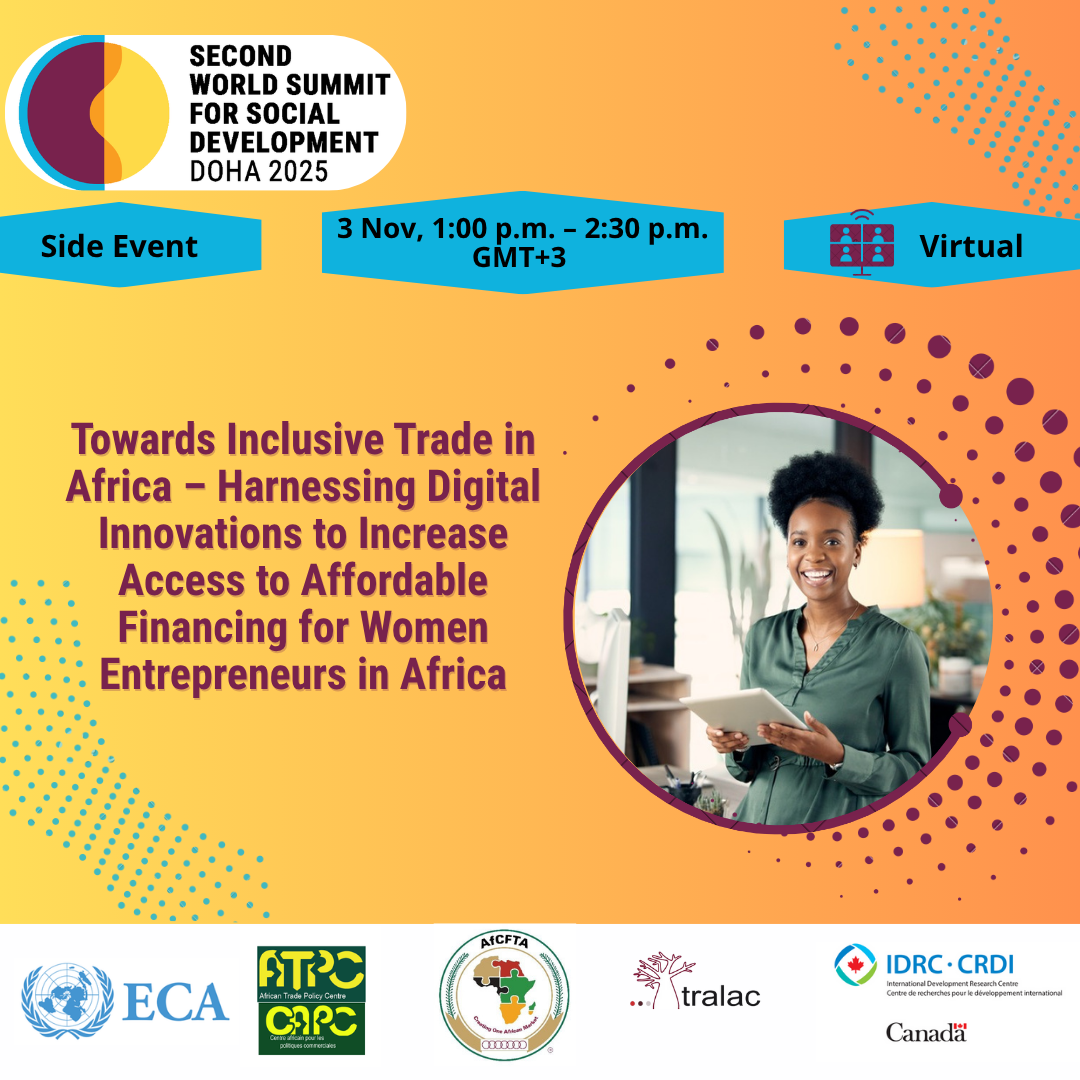
Background
Women have long been recognized as key drivers of not only societal progress but also economic growth. The World Bank estimates that over 90 percent of businesses in Africa are micro, small, and medium enterprises (MSMEs), with women dominating many of the sectors. Yet, despite significant progress with reducing gender gaps in education, access to finance, and employment, structural barriers and entrenched social norms continue to prevent women from fully engaging in trade and building productive economies. Sectoral and occupational segregation pushes many women into low-value adding sectors such as subsistence agriculture and the informal sector. In fact, women make up approximately 70% of informal cross-border traders in Africa.1 Similarly, female entrepreneurs are often seen as financially risky due to factors such as limited collateral and low financial literacy. This leads to their exclusion from formal financial systems, one of the biggest barriers to women’s advancement in trade and enterprise.